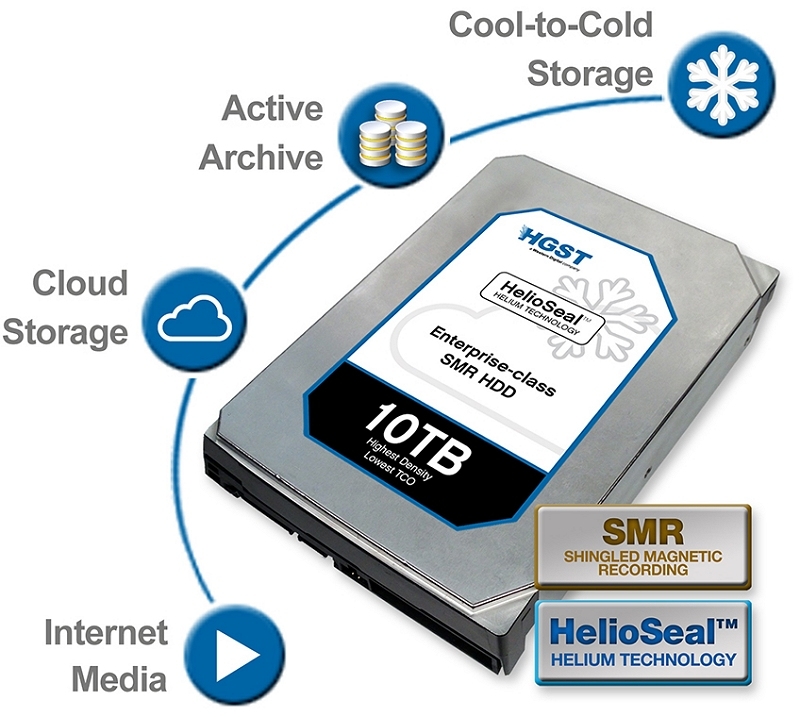
HGST on Tuesday announced half a dozen new products including the world’s first 10TB hard drive in a standard 3.5-inch form factor. To pull off this feat, the Western Digital company had to utilize a pair of newer drive technologies that you may be familiar with.
The as-yet unnamed 10TB drive uses shingled magnetic recording, a technology first announced last year that takes advantage of blank "guard space" between individual tracks in order to increase capacity without increasing the number of platters in a drive. It basically lays down tracks in an overlapping fashion like the shingles on a roof.
It does have a tradeoff, however, in that some rewriting still needs to occur – impacting overall performance just a bit. But for the types of enterprise users that’ll likely employ HGST’s new drive, that shouldn’t really matter much.
The other trick up HGST’s sleeve with the new drive is its HelioSeal technology. By removing the air inside a drive and replacing it with helium (then sealing it shut), HGST is able to reduce power consumption by 23 percent and lower operating temperatures by 4°C. What’s more, this allows them to stuff even more platters into a single drive chassis.
The drive isn’t quite ready for sale just yet although HGST tells us they are currently sampling it with select clients. Once ready, however, it’ll be destined for cloud and cold storage applications.